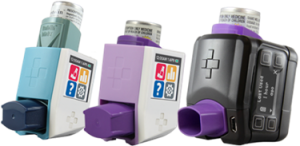Alarmingly high rates of non-adherence to medication occur in patients whose asthma is severe enough to make them eligible for biologics or thermoplasty, Victorian researcher say.
Respiratory physicians at a special clinic for patients with difficult asthma at The Alfred hospital, Melbourne, found that more than 50% of patients were non-adherent with their preventer medication.
And worryingly, the non-adherence – defined at taking less than 75% of medication – was only revealed by use of electronic monitoring devices and had gone undetected during multiple clinical reviews by respiratory specialists and nurses.

The findings were obtained from 69 patients with difficult asthma, of whom 47 were deemed eligible for novel therapies such as omalizumab (Xolair) or bronchial thermoplasty.
Through use of electronic monitoring devices on their inhalers, non-adherence was confirmed in 44%, and was possible a further 11 patients, bringing the total non-adherence rate to 55%.
Non-adherence was not related to severity of asthma symptoms or prevalence of anxiety and depression but the non-adherent patients had higher eosinophil counts, according to the study led by Dr Joy Lee a respiratory specialist in the hospital’s Department of Allergy, Asthma and Immunology.